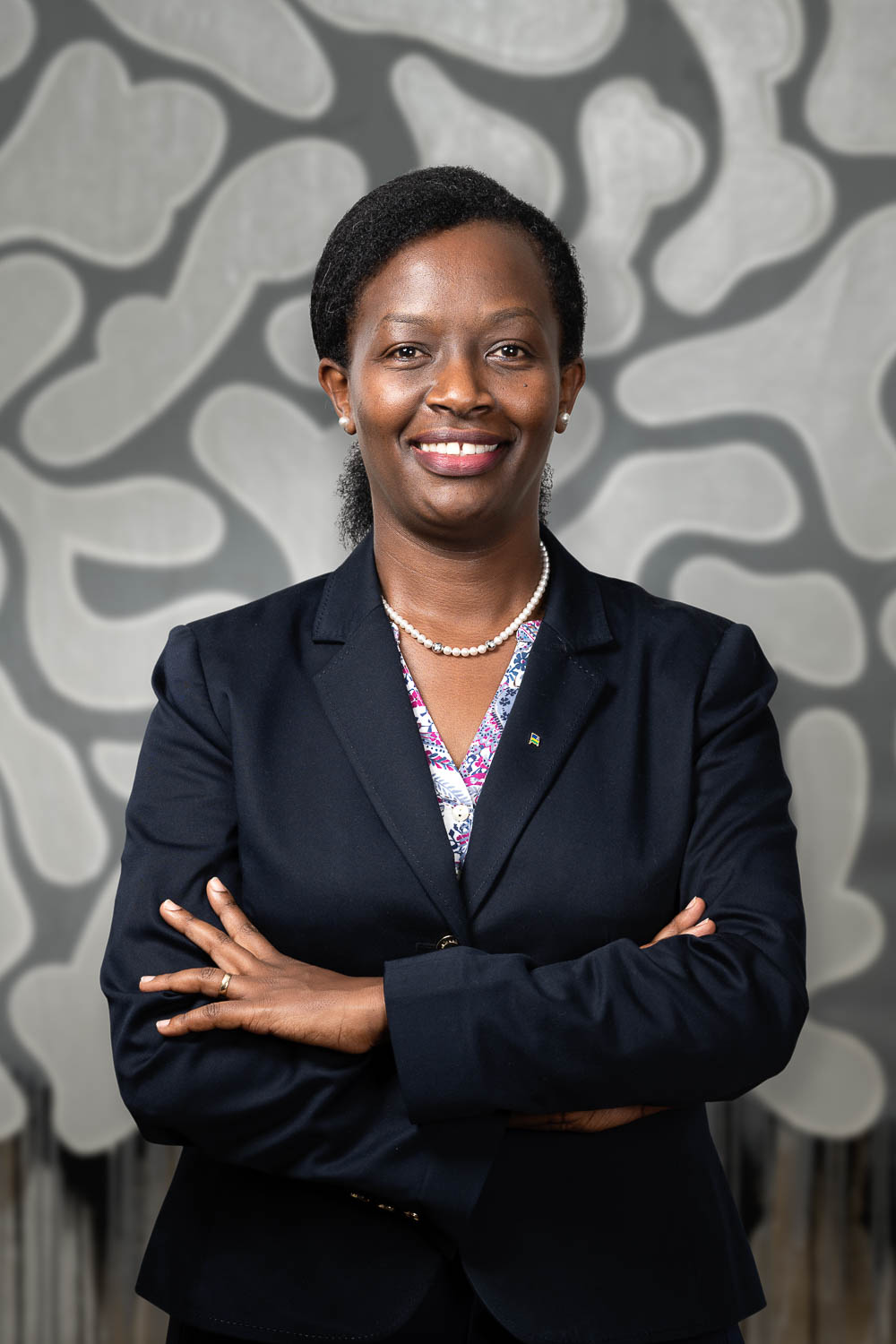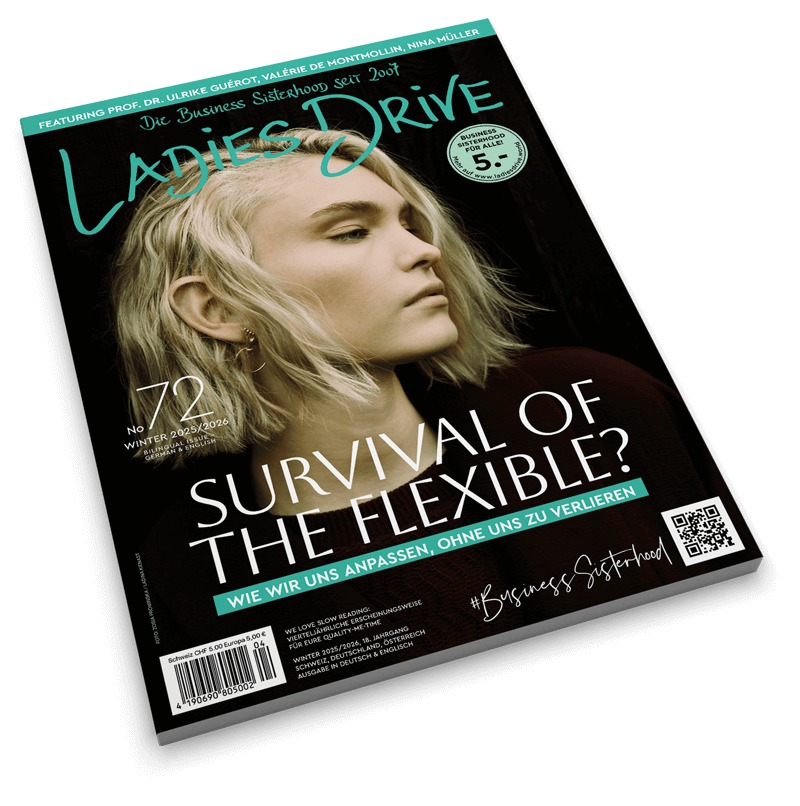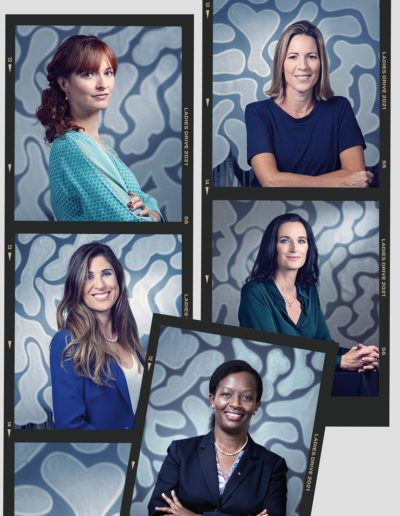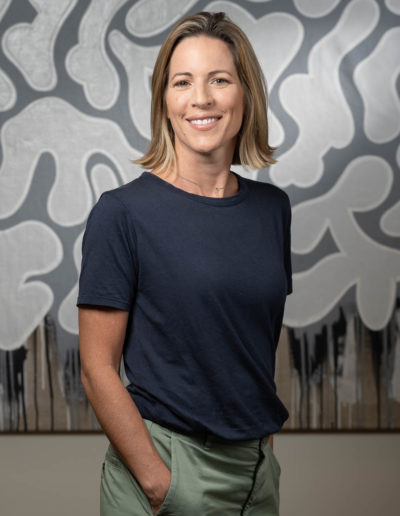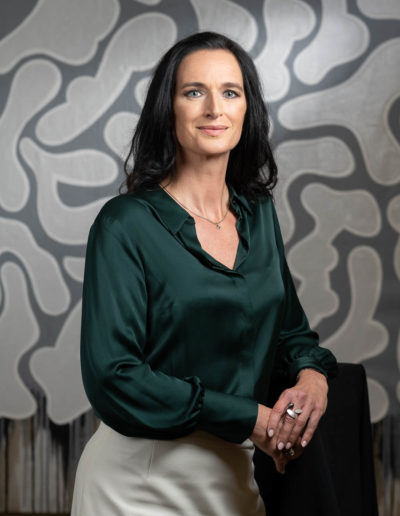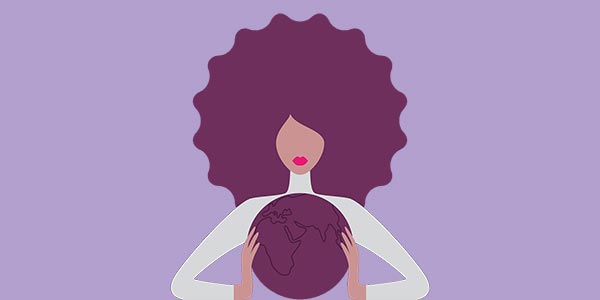Mrs Marie Chantal Rwakazina
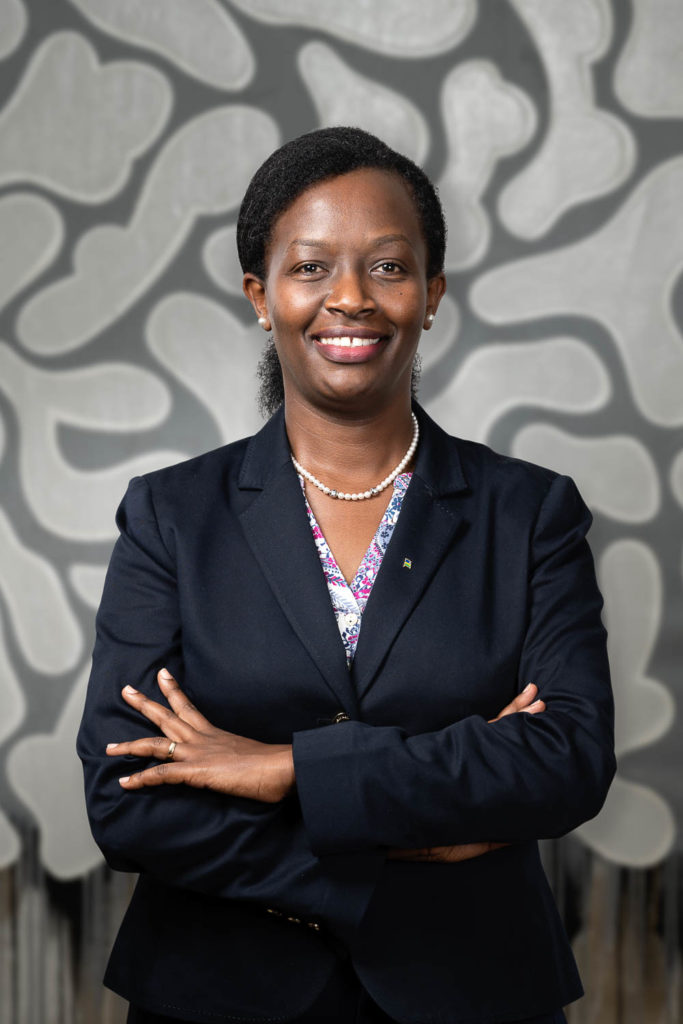
Ambassador of the Republic
of Rwanda to Switzerland and Permanent Representative
to the United Nations Office
and other International Organisations in Geneva
I wish for a world
where the needs of the most vulnerable are met
What are the 3 issues that are on top of your mind at present and that are challenging you? Why are these 3 issues so key for you and how do you try to face them?
The Covid-19 global pandemic; economic recovery; and climate crisis are among the most important issues that are on my mind at the moment.
The global COVID-19 pandemic is of great concern to all of us. It is not just a public health issue; it has had terrible effects on societies and economies. The pandemic has changed our lives overnight and we have had to progressively create a new normal. The pandemic has reminded us of two important things: the first is that we are all interconnected and therefore responses to global challenges must be addressed in a coordinated manner to be effective. In just a few weeks, the pandemic had made its way to all corners of the world, sparing no country. The second one is that we need to strengthen our health systems and build local capabilities, including in vaccines production in order to ensure equity in health matters.
In Rwanda, we have decided to develop vaccines manufacturing capacity. This will soon be a reality, thanks to strategic partnerships such as the agreement Rwanda signed with BioNTech and the European Investment Bank, in the margins of the AU-EU Ministerial Meeting on 26 October 2021 in Kigali, Rwanda.
Just 8 months to the beginning of our vaccination campaign, as of 08th November 2021, we have already vaccinated 100% of the adult population with the 1st dose and 97% is fully vaccinated in the capital city Kigali. Across the country, as of 15th November 2021, 63% of the adult population have got the 1st dose and 34.7% the 2nd dose. This exceeds the World Health Organisation (WHO) global target of immunising 10 per cent of the population of every country by September 2021 in the global efforts to contain the pandemic. Our objective is to have reached 60% fully vaccinated countrywide by the end of 2022 and we believe that depending on availability of vaccines, we might achieve this target by mid 2022.
Economic recovery is another burning issue. How do we get our economies back on their feet while building back better and developing systems that are actually resilient to future shocks?
Rwanda is determined to do so including through product diversification, value addition and the promotion of the Made in Rwanda Program.
The third global issue that is on my mind is the climate crisis. This is the greatest challenge of our time, and like COVID-19, it requires a global response. So far, the world has failed to meet commitments, both in terms of climate action and climate financing. The stakes are high for the UN climate change conference (COP26).
The largest economies who are responsible of 80% of emissions must support the rest of the world to deal with the consequences and be part of the solution. Africa has been particularly affected by the effects of climate change, and in July this year, the African Union launched its new 5-year Green Recovery Action Plan, which has biodiversity, renewable energy and climate finance as pillars.
Rwanda actively participated in COP26 held from 31 October to 12 November 2021 in Glasgow, Scotland. Its contribution included co-chairing negotiations on common timeframes for emission reduction commitments (nationally determined contributions) with Switzerland. It also shared its track record of fostering innovative solutions to climate change as one of the best destinations for green investment. The country is committed to protecting and addressing climate change and is working hard to achieve its 2030 goal of reducing 38% of its emissions, with a vision to be a climate resilient and a carbon neutral economy by 2050.
The fight against climate change is everyone’s responsibility regardless of geographical location. Mindful of this situation, the Embassy and Permanent Mission of the Republic of Rwanda in Geneva joined on 28 September 2020, a Swiss-led climate action Initiative “2050Today” and committed to reducing our Embassy’s emissions every year by 5% – and even more if we can – to achieve at least a 50% reduction in 2030, with the objective of reaching zero GHG emissions by 2050.
As the Ambassador of the Republic of Rwanda to Switzerland and Permanent Representative to the United Nations and other International Organisations in Geneva, I take part in various reflections on a multilateralism that is more effective, more inclusive, more science-based to address current and future global challenges. Rwanda will continue to be a strategic partner in advancing this kind of multilateralism.
What are the most disruptive things that you expect to happen in the near future?
To me, one of the most disruptive things which the near future holds is the new chapter of international trade and more specifically intra-African trade. In March 2018, at a historic meeting of the African Union in Kigali, Rwanda, member states of the African Union signed the African Continental Free Trade Agreement (AfCFTA). Though the implementation of the latter was slowed down by COVID-19 pandemic, the full implementation of AfCFTA in post-pandemic future will cause one of the most positive disruptions in the history of intra-African trade towards a more integrated African regional economy. African trade is largely dominated by extra-African trade which accounts for 85% of total African trade, against 48% for Asia and 27% for Europe. Intra-African trade accounts for about 15% of total African trade, against 73% in Europe and 52% in Asia. The AfCFTA is expected to boost intra-African exports by over 81% and extra-African exports by 19% by 2035.
The AfCFTA will affect us in three areas: first, it will increase intra-African trade due to the removal of tariff barriers and non-tariff barriers across Africa and will better include Africa in global trade supply chain. This will certainly provide a big incentive to regional trade, contribute to tackling poverty and inequality as AfCFTA’s wide scope will facilitate structural changes in African economies. Second, it will encourage businesspeople to make the investment needed to sustain economic growth and create job opportunities. Third, AfCFTA includes a protocol on free movement of people which will facilitate labour mobility in the continent.
What is your personal vision of a future you would like to live in with your loved ones? What should be done to create a future together that is bright?
In Rwanda, we have experienced first-hand what leadership based on hate, division and exclusion can do in destroying society compared to what the current leadership based on unity, consensus and a common purpose has accomplished and continues to accomplish.
To create a brighter future together, our current people-centred governance will keep playing a central role.
I wish for a world where a life’s worth is the same everywhere, a world where everyone can achieve their full potential without discrimination of any kind, a world where differences are considered richness rather than threats, and a world where the needs of the most vulnerable are met.
How can we overcome a collective trauma as a society and as individuals – as leaders and role models?
The first step is to acknowledge the trauma and the victims. Then you need to reflect and understand what happened and why it happened. From that point, if you make a decision to heal, you must put in the work and sustain it. This is a long-term enterprise that takes generations to be complete. To heal any type of trauma, there is a need for justice, forgiveness, dialogue, reconciliation, memory, education and a structural change to avoid future similar traumas.
The post 1994 genocide reconstruction in Rwanda is hailed as a success due, in part, to community-based Genocide courts known as “Gacaca” courts, which were based on a traditional form of dispute resolution. In just 10 years, over 130,000 suspects were tried through Gacaca courts, compared to 93 suspects indicted by International Criminal Tribunal for Rwanda. Of these, 63 were sentenced. The Gacaca, combined with other Unity and Reconciliation programs, allowed for justice to be served and for communities to reconcile.
To safeguard the Rwandan identity that we have been building over the 27 years but also to preserve the memory of the 1994 Genocide against the Tutsi and to educate future generations on the dangers of divisionism, the Ministry of National Unity and Civic Engagement was recently created.
All this requires a collective effort to stay together and to move forward as a society. That is the decision that Rwandans took after the 1994 Genocide against the Tutsi. As H.E Paul Kagame, President of the Republic of Rwanda highlighted at the 20th Commemoration of Genocide Against the Tutsi “after 1994, everything was a priority and our people were completely broken. But we made three fundamental choices that guide us to this day: being together; being accountable to ourselves; and thinking big”.

